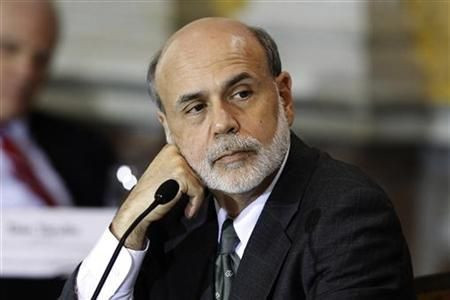Expansionary Monetary Policy Could Spark Repeat of '11: Morgan Stanley Economist

Expansionary monetary policy globally could spark a repeat of the inflation run-up seen in 2011, said Morgan Stanley economist Spyros Andreopoulos in a Global Economic Forum commentary.
Since the fourth quarter of 2011, 16 (7 in developed countries and 9 in emerging market countries) of the 33 central banks tracked by Morgan Stanley have eased monetary policy.
For example, the People's Bank of China has cut its bank reserve requirement ratio and the European Central Bank (ECB) has pumped hundreds of billions of euros into the European financial system.
Andreopoulos thinks the efforts the ECB are not enough, however, and that it will have to embark on broad based asset purchases of private and public sector assets.
Most central banks, like the ones in China and the Eurozone, are engaged in expansionary monetary policy in response to financial or economic weakness.
In this same period, the U.S. economy and financial markets have been relatively robust. Andreopoulos, however, thinks the Federal Reserve will still roll out another round of quantitative easing to nurture the green shoots, or support the (weak) recovery as it unfolds rather than allow it to flag again.
With many central banks, including the biggest ones in the world, joining the expansionary monetary policy party, Andreopoulos and his colleagues at Morgan Stanley have dubbed it the Great Monetary Easing, Part 2 (GME2).
The obvious fear of GME2 is inflation down the road, especially in the context of an increasingly belligerent Iran, which is threatening to cut oil shipments and even block the Strait of Hormuz.
GME2 may raise the global price of commodities; unlike fiat currencies, commodities like oil and copper are hard assets with intrinsic values.
Rising commodities prices may weaken economic growth in developed countries and both accelerate inflation and weaken economic growth in emerging market countries.
Moreover, if emerging market countries maintain their currency pegs to the U.S. dollar, U.S. quantitative easing will represent another temptation to ease their own monetary policies.
Accelerating inflation in emerging market countries, in turn, could stoke inflation in developed countries through higher import prices.
Andreopoulos thinks inflationary pressure this time around may force some emerging market countries to abandon their U.S. dollar pegs, although doing so may make their goods less competitive in the global market because their currencies will be more expensive.
For developed countries, the U.S. dollar depegging could stoke inflation through higher prices for imports and globally-traded commodities, even if it does make their goods more competitive in the global market.
Either way, there may be no neat way to avoid the consequences of GME2.
The fundamental fear is that the global economy is in reality troubled, with developed countries weak and emerging market countries structurally imbalanced and distorted, and that expansionary monetary policy globally simply masked the problem.
If that is the case, the global economy will pay for the cost of expansionary monetary policy in the form of inflation down the road.
The risks to inflation...look skewed to the upside. Throw commodity prices into the mix - already meaningfully higher recently and the script becomes familiar - reminiscent of the inflation run-up that materialized between 3Q10 and 3Q11, said Andreopoulos.
Inflation, if it were to materialize, will probably become visible late this year but unfolding mostly in 2013, he said.
© Copyright IBTimes 2024. All rights reserved.




















